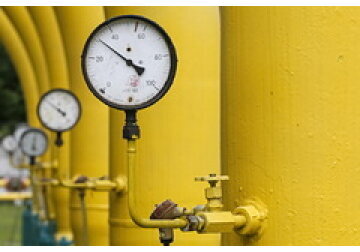
Moldova will soon switch to measuring natural gas in kilowatt-hours (kWh) instead of cubic meters, according to European standards.
Vadim Ceban, Chairman of the Moldovagaz Board, said this, noting that Latvia, Lithuania, Ukraine and Estonia, the post-Soviet countries that seek to diversify energy supply markets, had done so earlier. The head of Moldovagaz reminded that the measurement of natural gas in kWh has been legally introduced in Moldova since 2019, while it is used in export-import transactions. According to him, the main participants of the gas market of Moldova, Moldovagaz, Energocom, Moldovatransgas and Vestmoldtransgas should apply to the National Energy Regulatory Agency to improve the regulatory basis for calculation of consumed energy by the final consumers. Vadim Ceban explained that measuring gas in kWh allows for more accurate and fair gas accounting. Cubic meter of gas contains different amount of energy depending on its composition, combustion temperature and pressure. Earlier Moldova used to get gas only from one supplier from Russia, now the sources are different, often the country gets a mix of gases, i.e. the composition of one cubic meter can differ depending on which batch it comes from. According to the head of Moldovagaz, the new method of calculation provides for paying not for the volume, but for the energy produced by burning natural gas in kWh. The consumers will not change the process of taking readings, they will be taken, as before, in cubic meters, because all measuring devices (meters) show data in cubic meters and the replacement of all meters across the country is not possible in the near future. Vadim Ceban specified that there are several scenarios abroad for calculating energy consumption. According to the first scenario, the calculation is based on the zonal principle. The operators of the gas distribution system divide the country into zones with different calorific value coefficients for each, depending on the transportation route and the quality of gas. In this case, the consumer is informed which zone his/her household belongs to and what is the coefficient. According to the second scenario, a single, weighted average calorific value coefficient is introduced for the entire country. In this case, the principle of solidarity applies. To get the consumption in kWh, cubic meters are multiplied by the calorific value factor. On average, 1 m³ ≈ 10.55 kWh. In both cases, the payment receipts indicate the consumed volume of gas in cubic meters and its equivalent in kWh. Unification of systems for measuring the consumed energy will allow, for example, to compare what is cheaper to heat houses with - gas or electricity. The head of Moldovagaz noted that the replacement of meters will be done at the expense of the supplier. "How much will the consumer's expenses decrease? It is necessary to calculate in each case separately. It depends, among other things, on such parameters as: the ratio of the cost of 1 kW of gas to electricity, the efficiency of heating equipment, insulation of the house or apartment, the area, etc., etc.," Vadim Ceban wrote on his page. // 20.06.2023 – InfoMarket







